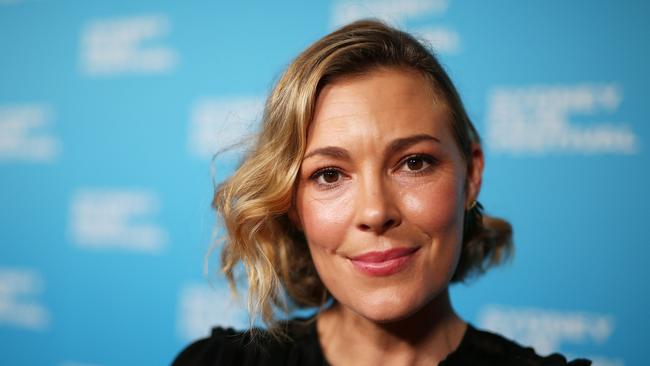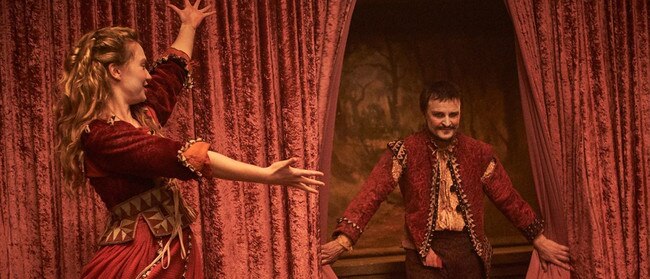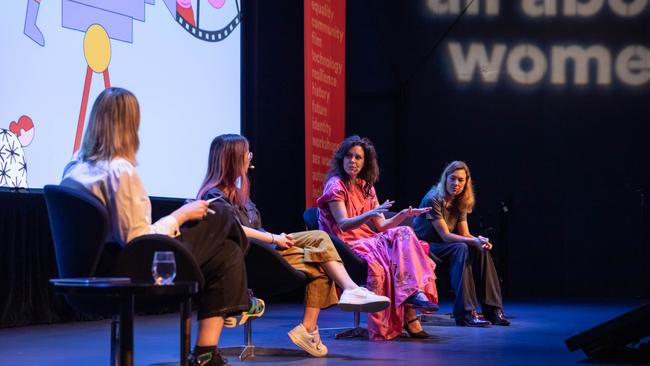Hollywood turns to Oz... but at what cost?
Local filmmakers are struggling to find crew amid international filmmaking boom, says Judy & Punch director Mirrah Faulkes.

Hollywood is decamping to Australia but it could come at a cost to local production, according to talented actor and director Mirrah Foulkes.
“You bring in a couple of those big Marvel movies, and suddenly all the best crew, a lot of cast and studio space is taken up,” says Foulkes, whose 2019 directorial debut Judy & Punch – billed a feminist revenge film about puppetry – was critically lauded for its ingenuity.
Foulkes is part of the Australian filmmaking collective Blue Tongue Films, which also includes her husband, The King director David Michôd, and brothers Joel and Nash Edgerton. Speaking after a panel discussion at the Sydney Opera House’s All About Women Festival last weekend, Foulkes said: “It makes it quite difficult for local productions to crew-up and find space. A lot of directors I know are having a hard time getting crew at the moment.
“Yes, the boom is amazing. But I think we need to make sure there’s a tangible benefit for the Australian industry that isn’t just short-term.”

Since Scott Morrison announced a $400 million boost to the Australian film industry in a bid to attract overseas productions last July, Australia has begun to feel like little Hollywood. Currently, Mark Wahlberg, Idris Elba, Natalie Portman, Liam Neeson and Tilda Swinton are among the A-listers living and filming in Australia.
On Tuesday, it was announced that Ticket to Paradise, a film starring George Clooney and Julia Roberts, would soon begin shooting in Queensland. According to communications and arts Minister Paul Fletcher, the government has attracted 22 international productions to Australia as part of its location incentive since its inception.
“We have provided more than 12,700 employment opportunities for local cast and crew, generation work for over 13,500 businesses that support these big productions,” said Fletcher in a statement.
The numbers certainly sound impressive. But the challenge for the government and industry bodies now is to ensure big-budget productions aren’t the only ones reaping the benefits.
“Australia is such a great place to shoot – the crews and cast are great, locations are great… but we need to make sure this isn’t just about the crew that are on Thor for the next few months. It’s about making sure we support the greater ecosystem,” Foulkes tells The Australian.
Part of that involves working out how to sustain the current boom, adds the filmmaker, so that crew aren’t left high and dry if and when the pandemic eases, and productions shift back to Hollywood.
“The really important thing is to work out how we can sustain this, because what’s happening is a whole new generation of crew and cast are being trained up, geared up and they’re working a lot. If that work drops off there are a whole lot of people out of work all of a sudden.”
“Yes, it’s great. But that’s the challenge.”

The weekend’s ‘Women in Film’ panel also saw Director of Content (ANZ) at Netflix, Que Minh Luu, and American actor Ione Skye, who recently relocated to Australia with her husband, musician Ben Lee, speak about the challenges and opportunities facing women in the screen industry today.
The need to embrace Australian stories, in all their diversity and authenticity, was also raised by the panellists. “Because of the way the film industry is, I think we’ve always had this sense of needing to adapt to fit into the American industry, rather than just leaning into what’s intrinsically Australian,” said Foulkes after the panel. “But I think when it’s done in a truthful way, the work will travel internationally.”
Skye, who shot to fame after starring in cult ’80s film Say Anything..., observedthe desire to make films palatable for an international audience is something she’d not encountered before arriving in Australia. “Someone creating a show in America would never think, ‘oh, let’s not set this in America, or let’s not have this be about Americans’,” said the actress, whose recent credits include appearing alongside Jennifer Garner in TV series Camping, after the panel.
“I think it’s about hedging our bets less,” added Foulkes. “Trying to be less internationally appealing and trying harder to be purer of story.”
You can rent the All About Women streaming program, curated by Melbourne Film Festival and Golden Age Cinema programmer Kate Jinx, here.


To join the conversation, please log in. Don't have an account? Register
Join the conversation, you are commenting as Logout